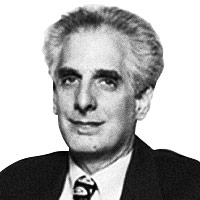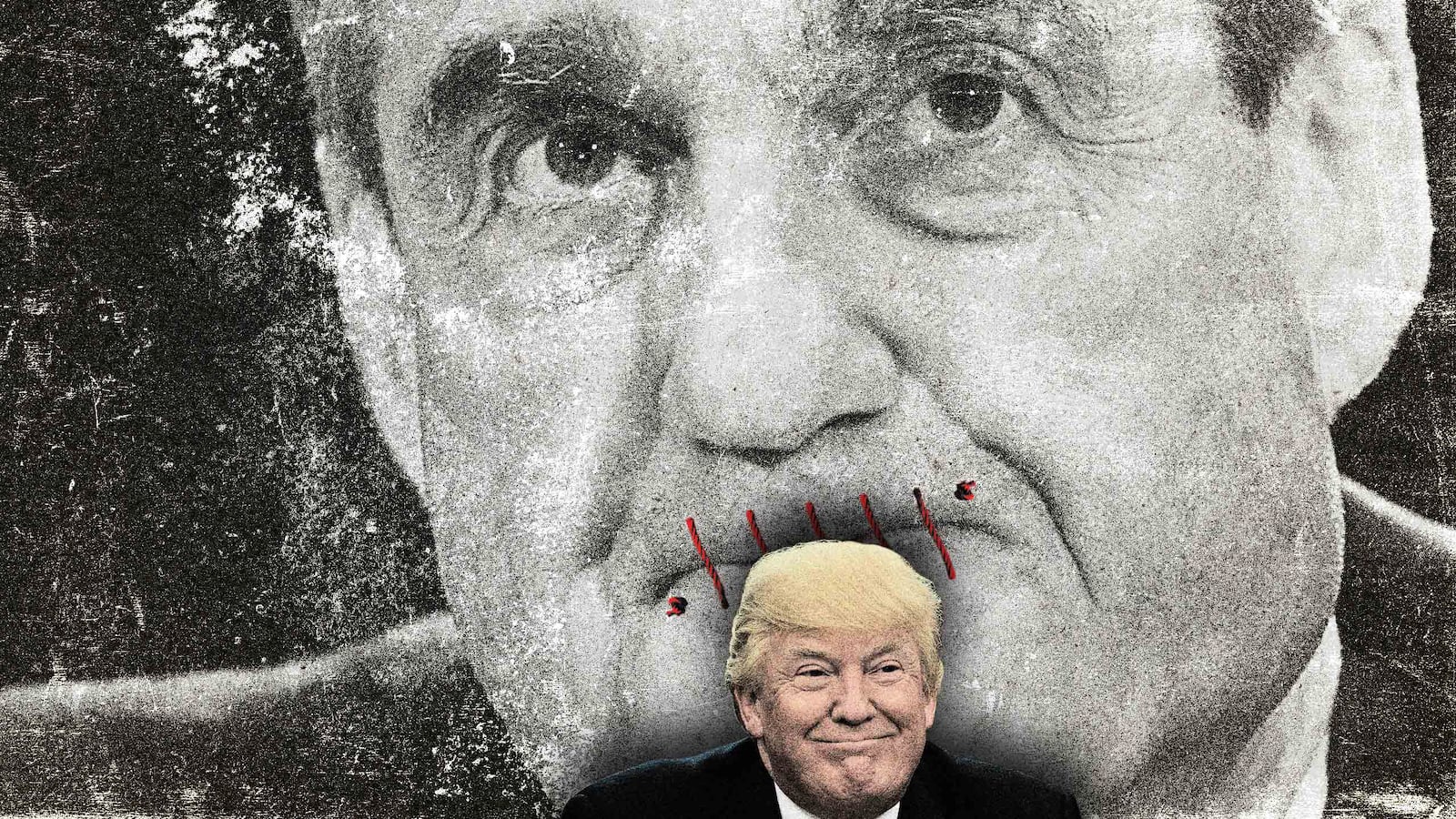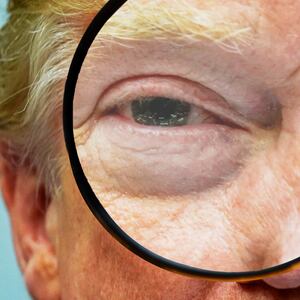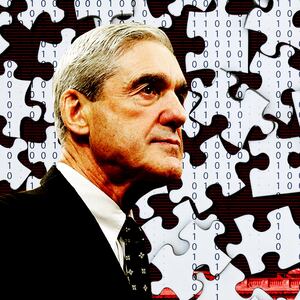Donald Trump’s next attorney general may attempt to immunize the president from impeachment by preventing Congress from reviewing the most significant evidence against him: what Special Counsel Robert Mueller has found.
Justice Department policy bars federal prosecutors from trying a sitting president for criminal conduct. That leaves impeachment and removal by Congress as the only way to hold Trump accountable for any misconduct, no matter how serious, throughout the remainder of his term in office. Attorney general nominee William Barr, however, has suggested that governing law may prevent Congress from reviewing critical evidence that Mueller and other prosecutors have obtained against Trump. This could wholly prevent any effective impeachment inquiry until Trump departs from the White House, for as long as six more years.
But Barr’s suggestion that Congress can be prevented from seeing prosecutors’ evidence against Trump is wrong. A court decision that allowed the House to review the evidence the Watergate prosecutors assembled against Richard Nixon expressly states that Congress has the right to obtain all evidence gathered against a president by criminal investigators in connection with an impeachment proceeding.
Pursuant to Article II of the Constitution, the House may impeach, and the Senate may remove, a president who has committed “high crimes or misdemeanors.” But given that congressional investigations of Trump were hobbled during the two years that GOP had control of both houses of Congress, the bulk of the relevant evidence is exclusively in the hands of Mueller and other federal prosecutors.
For example, Senate Intelligence Committee Chairman Richard Burr said on Tuesday that “we don't have anything that would suggest there was collusion by the Trump campaign and Russia." Yet The New York Times recently suggested that the investigation of a potential illicit agreement involving Trump’s former campaign chairman, Paul Manafort, continues to be at the “heart” of Mueller’s inquiry.
Therefore, as Senator Chris Murphy put it, Mueller must “show his cards to Congress before it’s too late.” Unless Congress receives the prosecutors’ evidence soon, the legislature could well be unable to adjudge whether the president committed potentially impeachable offenses before the next presidential campaign proceeds with full force.
Much attention has been paid to Barr’s refusal to commit to sharing the entirety of Mueller’s final report with the public, let alone with Congress, on the ground that the report might be subject to applicable rules of secrecy and privacy. In fact, Mueller’s report could well be of limited value to any congressional inquiry into Trump’s conduct. Under the governing regulations, a special counsel’s final report is supposed to be limited to a discussion of his decisions whether or not to charge particular individuals. And given that Mueller lacks authority to prosecute Trump, the report may well contain limited material about the president. But Barr’s recent statements also suggest that he may argue that the DOJ cannot divulge the information that Congress most urgently requires: the actual testimony and other evidence prosecutors have gathered regarding Trump’s conduct.
It is true that, in most criminal cases, applicable rules impose high hurdles to sharing evidence from criminal investigations with the public or with Congress, the most important among them being the rules governing grand jury secrecy. Much of the evidence in federal criminal investigations, including witness testimony, is obtained primarily in grand jury proceedings. Federal Rule of Evidence 6(e) codifies traditional rules of grand jury secrecy, and–subject to certain specified exceptions–generally prohibits the government from disclosing grand jury evidence outside of indictments (and other charging documents) and criminal trials. Accordingly, as former U.S. attorney Joyce Vance recently explained, the rule could well be construed to prevent any disclosure of Mueller’s evidence.
During Watergate, however, a federal court determined that, despite the otherwise applicable strictures of the Rules of Evidence, a federal grand jury was nonetheless able to share the evidence it had gathered against the president with a congressional impeachment inquiry. As Benjamin Wittes and Jack Goldsmith have explained, in 1974, special prosecutor Leon Jaworski’s staff prepared the so-called “Road Map,” a document issued in the name of the grand jury that tersely summarized the evidence that prosecutors had obtained of potential misconduct by the president. This document was accompanied by boxes of the supporting grand jury evidence.
After the materials were assembled, Peter Rodino, the chairman of the House Judiciary Committee, wrote to D.C. District Court Judge John Sirica on behalf of the committee formally requesting access to the evidence. The court granted Congress’s request, arguing that “it would be unthinkable if this material were kept from the House of Representatives in the course of the discharge of its most awesome constitutional responsibility.”
In his opinion granting the request, Sirica echoed Rodino’s language, observing “that we deal in a matter of the most critical moment to the Nation, an impeachment investigation involving the President of the United States. It would be difficult to conceive of a more compelling need than that of this country for an unswervingly fair inquiry based on all the pertinent information.” Indeed, it would be “incredible,” Judge Sirica stated, if evidence that can be used in a garden variety police investigation was categorically “unavailable to the House of Representatives in a proceeding of so great import as an impeachment investigation.” The D.C. Circuit of Appeals approved of Sirica’s ruling, stating that it was “in general agreement” that a trial judge possesses authority to order the disclosure of grand jury materials on public policy grounds in such extraordinary circumstances.
As Alex Whiting and Ryan Goodman have pointed out, an appellate court came to the same conclusion more recently in upholding the right of the House Judiciary Committee to review grand jury materials during an impeachment inquiry respecting a convicted federal judge. Indeed, the court observed that an impeachment inquiry could well be considered a “judicial inquiry,” and to therefore fall within one of the express exceptions to the grand jury secrecy rule applicable to judicial proceedings. The court in fact observed that the judiciary might well lack the power to prevent Congress from sharing the materials it receives with the public, if it so desires.
Furthermore, as a recent decision by another court states, the appeals court’s Watergate decision continues to reflect the view of a majority of federal courts to address the issue; and, while that court is currently considering a case in which the breadth of the Nixon decision has been questioned, it seems unlikely that the court will squarely overrule the precedent.
As evidence mounts that Trump’s campaign and his businesses, as well as the president himself, have broken the law, it looks increasingly likely that the nation will soon enter another “critical moment.” Therefore, it is now time for Congress to prepare to issue a subpoena, to the DOJ or make the same sort of demand for Mueller’s grand jury evidence that the House made to Jaworski in 1974.
One can anticipate, however, that the Congress could well face a fight in the courts when it makes such a demand, In 1974, President Nixon did not formally object to the release of the grand jury material, a factor that the appeals court emphasized in upholding the release, presumably because Nixon recognized that brazenly attempting to prevent the Congress from reviewing the evidence against him would be politically catastrophic.
Trump, however, has demonstrated little hesitancy to openly engage in efforts to obstruct justice. Therefore, our current president might try to stand in the way of the sharing of Mueller’s evidence with the Congress, possibly with the support of his new attorney general.
Hopefully, however, the courts will not countenance any such gambit.








